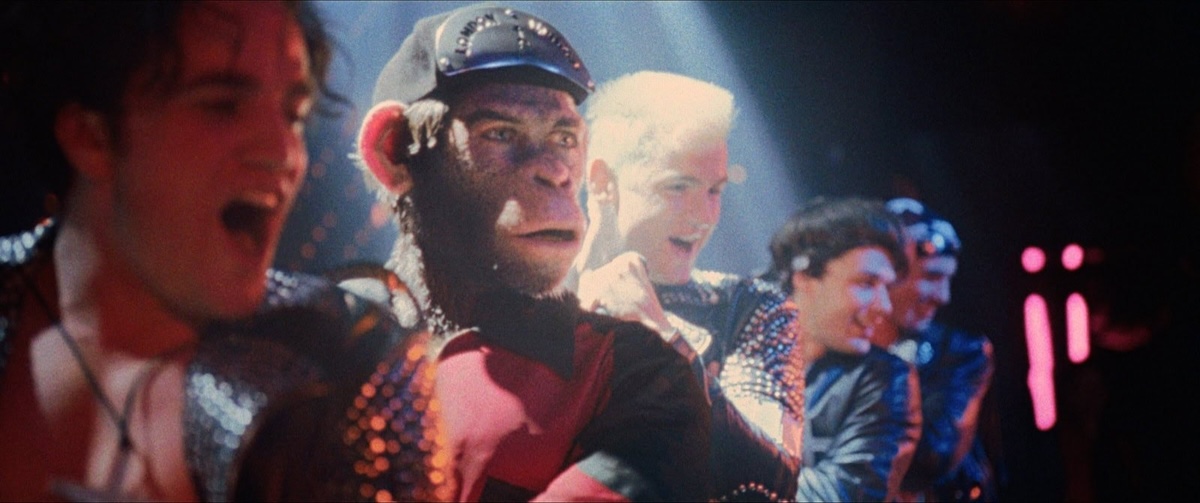The biopic of British singer-songwriter Robbie Williams, Better Man, is tanking badly in US theaters. Which figures — most Americans have no idea who Robbie Williams is. His big hits in the UK and many other countries, such as “Angels” and “Millennium,” never really caught on here.
That plus the film’s one big eccentricity — having Williams represented as a tall-standing, humanoid chimpanzee — made the movie seem like it was going to be a wild ride, perhaps, or at least some sort of satire of the popular biopic form. It’s not, unfortunately, though many critics who really ought to get out more are raving about its supposed eye-popping inventiveness. And there are some flashy musical numbers, all chopped up with flashbacks and point-of-view shots of Robbie’s demons, but nothing you haven’t experienced before.
Directed by Michael Gracey (The Greatest Showman), Better Man is actually such a typical biopic that audiences need not have feared being force-fed something too daring. It follows the sickeningly familiar formula of the pop music performer’s life story as laid out by dozens of movies as well as the old lurid VH1 documentary series Behind the Music. You know the drill — how some singer or band achieves fame and fortune while experiencing youthful trauma on the way up, then at the top succumbs to alcoholism and drug addiction and monstrously swollen egoism that alienates friends, bandmates, and loved ones while imperiling the celebrity’s career. But in the end, there’s some sort of redemption or a comeback.
The magnificent Simpsons episode that spoofed the series and really nails down the sententious tone of biopics in general is titled “Behind the Laughter.” It features such gems as Homer’s voice-over solemnly charting his renowned family’s decline: “Fame was like a drug. But what was even more like a drug was the drugs.”
In Better Man, Robbie Williams does his own voiceover, which is full of…
Auteur: Eileen Jones

